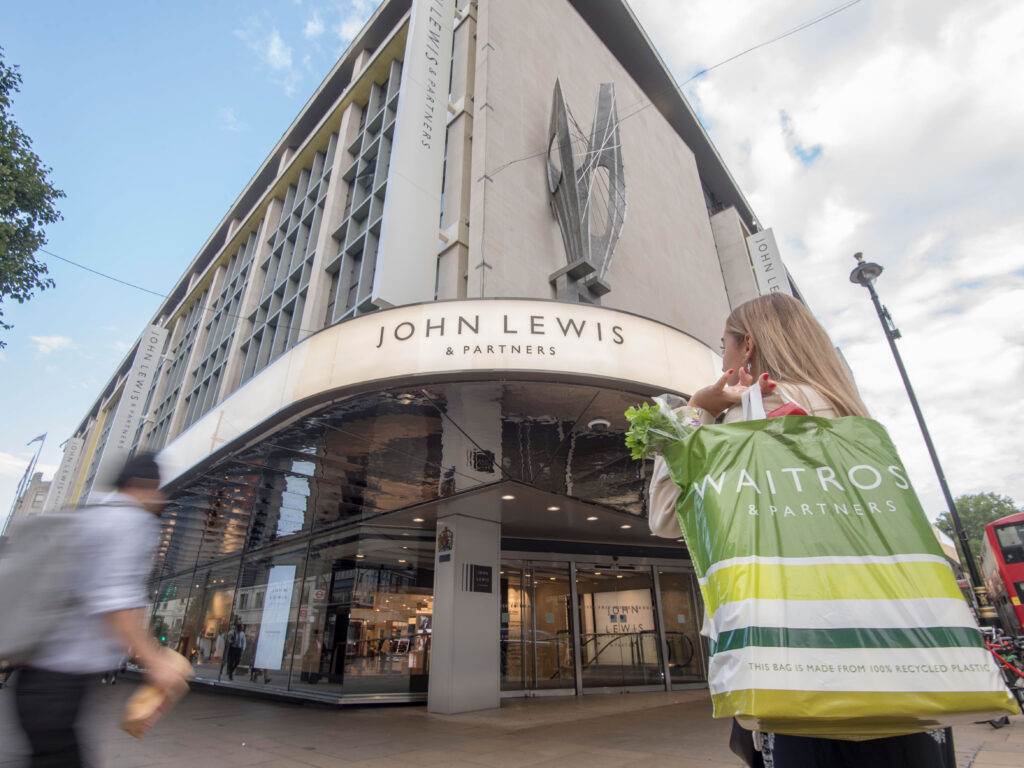LSST’s Deputy CEO looks to John Lewis as the ‘barometer’ of shopping trends
By Kunal Chan Mehta | Article Date: 25 January 2021
 John Lewis & Partners (Oxford Street, London). Photograph: courtesy of John Lewis.
John Lewis & Partners (Oxford Street, London). Photograph: courtesy of John Lewis.
The coronavirus has razed, repressed and reinvented our shopping habits, kick-starting a retail revolution. New shopping trends have fast developed amid a ravaging pandemic. LSST’s Deputy CEO looks to England’s omnichannel retailer, John Lewis, to find out more.
Unquestionably, 2020 will be remembered as the year that changed every aspect of our lives: how we live, learn, socialise, work – and shop.
Simon Coble, the revered Trading Director for John Lewis, said: ‘2020 was a year in which people’s homes truly became their castles. We couldn’t venture out into the world, so we brought the world into our homes. We’ve stayed in, hunkered down, decked out and spruced up our living spaces.’
‘John Lewis is the barometer of shopping trends,’ said Mr Mohammed Zaidi, LSST’s Deputy CEO, reviewing John Lewis’ trading reports. ‘The first lockdown (March 2020) saw many of us taking pleasure from the simpler things in life, such as letter writing to stay in touch with close ones, evidenced by a sale surge of calligraphy pens at John Lewis.’
‘NHS rainbows, as a sign of resilience, boosted rainbow clothing and puzzle sales in support of NHS staff and key workers. As we adapted to a more relaxed routine, alarm clock sales fell 38% and, owing to travel limits, the demand for suitcases dropped 69%,’ continued Mr Mohammed Zaidi.
Concerning 2021 trends, the report also reveals a baby boom is evident, with searches for ‘new baby’ on johnlewis.com up +274% in December 2020, and that there will be ‘more love for our homes, wellbeing and the planet.’
Speaking with LSST, John Lewis pointed out that lockdowns have caused the ‘Netflix Effect’ where popular shows impact product sales. For instance, sales of chess sets soared as The Queen’s Gambit grew in popularity; berets rocketed due to Emily in Paris; and sales of floral wallpaper and patterned upholstery leapt thanks to The Crown.
Transitioning retail trends
Despite the lockdown, consumers are still looking to make a connection. Customers do not stop spending when the shops are shut: they transition to shop online and demand immersive retail websites that bridge human-connection remotely.
The logical and psychological shopping process, as we know it, is currently redeveloping in real-time. In-store shopping, closely associated with benefits of escape, socialisation and simple fun, is under question as it cannot be entirely matched by online shopping – the lockdown alternative to in-store shopping.
Like many other businesses, e-commerce at John Lewis is likely to have been turbocharged by the Covid-19 crisis – especially now that more customers see how doable, easy and fast it is.
‘The sector needs to urgently set the stage for a vivid online shopping transition focusing on personalised offerings, accessibility and innovation that captures customers from the start. The sector’s focus must be on how it reintroduces fun, adventure and discovery into the online shopping experience – that can often be lacking,’ retorted Mr Mohammed Zaidi on retail resilience. ‘Truth, transparency and trust are key to facilitate this.’
After the pandemic
Mr Mohammed Zaidi presciently said: ‘Some argue that retail’s brick and mortar future is not bright. I take the opposite view. I believe that once the testing era of Covid-19 is over, everyone will undoubtedly return to in-store shopping for a renewed experience – and something many people have realised how much they miss during lockdown.’
As Covid-19 accelerated changes to the high street, retailers such as John Lewis have become experts in adapting and quickly employed digital tools and new ways of selling, all with little notice. More fundamentally, the new shopping practices may have begun out of necessity, but they will shape the retail industry long after the pandemic.
Mr Mohammed Zaidi concluded: ‘John Lewis, through exceptionalism and its visionary leadership and experience, is well placed to accelerate when the pandemic eases. Commerciality, creativity and composure set it apart and, thus, its customers will be happy to receive the exuberant ‘John Lewis’ care wherever it is found.’
To find out more about this article, LSST students are encouraged to email the author kunal.mehta@lsst.ac for additional insights.
Opinions and quotes belong to and represent respective contributors. This article was staff (Jordan Forgie and Lynnette Douglas) and student (Irina Barariu and Kamil Sahin) peer-reviewed before publication.



